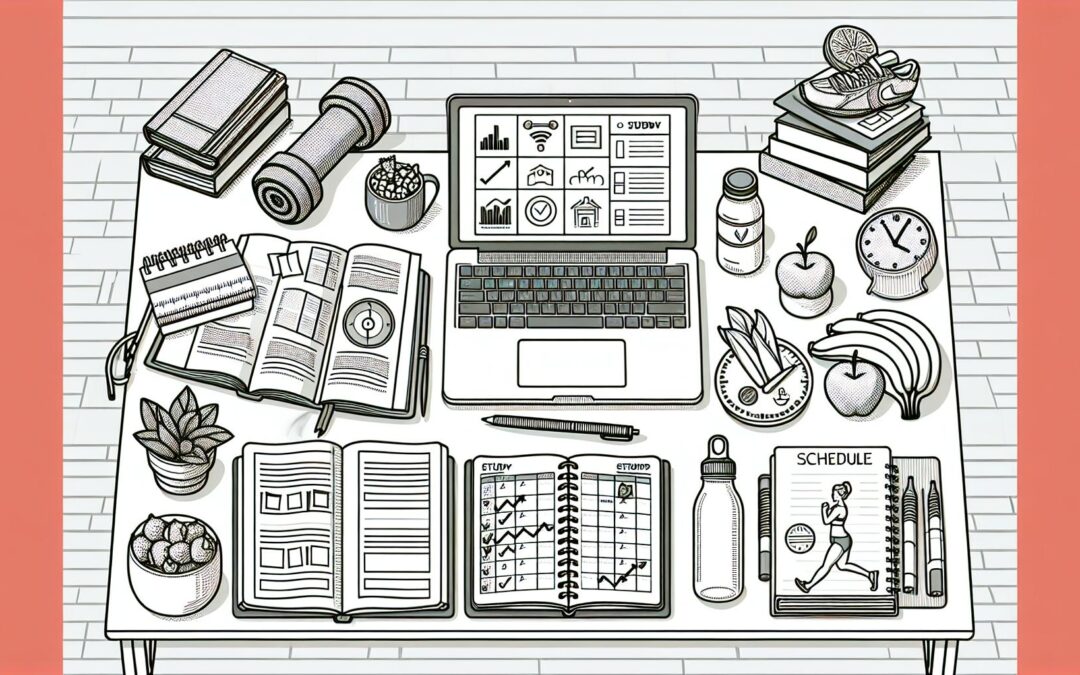Preparing for the Patent Bar Exam can be a daunting task. Many candidates dive right in, eager to conquer the challenge. However, there are common pitfalls that can hinder your success. In this blog, we’ll highlight seven mistakes to steer clear of during your Patent Bar Review Course to help you on your journey toward becoming a registered patent agent.
1. Neglecting a Study Schedule
One of the biggest missteps is failing to create a dedicated study schedule. Setting clear timelines for what you need to cover helps keep you organized and accountable. Without a solid plan, it’s easy to veer off course and lose track of what you’ve studied. Think of your study schedule as a roadmap on your journey to passing the Patent Bar Exam.
To be effective, your schedule should be tailored to your needs and learning style. Start by breaking down the material into manageable sections that you can tackle over time. Incorporating milestones can serve as motivation—each time you complete a section, you gain a sense of progress.
Additionally, don’t forget to allow flexibility in your schedule. Life can bring unexpected interruptions, so having backup days or catch-up sessions can relieve stress and keep you on track overall.
2. Ignoring Practice Exams
Some may underestimate the importance of practice exams. Regularly taking practice tests can help you familiarize yourself with the exam format and identify areas needing improvement. But it’s not just about taking the exams; it’s about reviewing them thoroughly.
After completing a practice exam, take time to go over your answers—especially the ones you got wrong. Understanding why you missed certain questions can help plug knowledge gaps and solidify your grasp on challenging topics. This reflective practice not only builds confidence but also enhances overall performance.
Moreover, simulating exam conditions during these practice runs can further prepare you for the actual test day. Try to replicate the time constraints and environment as closely as possible for the best experience.
3. Overlooking Legal Updates
Staying current with legal updates and changes is crucial. Ignoring recent developments can put you at a disadvantage during the exam. Not only does the patent law landscape evolve, but also certain questions may hinge on these updates.
To keep abreast of changes, set aside regular time to read pertinent legal blogs, subscribe to intellectual property newsletters, and join online forums where such discussions take place. This proactive measure can enhance your understanding and help you think critically about how legal changes might affect various scenarios.
Moreover, many experts recommend incorporating discussions on these updates into study groups. Engaging in dialogue about the latest developments with your peers can deepen your comprehension and highlight differing perspectives on the implications.
4. Studying in Isolation
Learning alone can be tedious and limiting. Collaborating with peers or joining study groups can enhance understanding through discussion and shared resources. The interaction also serves as a morale booster, which can alleviate the stress often associated with intensive study.
Consider using platforms or local meet-ups where candidates gather to compare notes and explore complex topics. With different backgrounds and insights, your study group can cover a broader range of interpretations and applications of patent law.
Additionally, teaching others is a powerful way to reinforce your own understanding. By explaining complex concepts to fellow students, you review the material and reveal any gaps in your knowledge that you may wish to address further.
5. Underestimating the Material
Some candidates assume they know the material better than they do. Taking time to thoroughly review all subjects is essential for a comprehensive grasp of the content. This overconfidence can lead to unforeseen challenges during the exam.
To counter this common mistake, approach each topic with a fresh perspective—even the ones you feel comfortable with. It’s helpful to revisit fundamental concepts before exploring advanced subjects, as these basics often serve as the backbone for more complex ideas.
Another effective method is to create summary notes or flashcards for each topic. Quick reference guides can help consolidate your understanding and serve as powerful tools for revision as you approach the exam date.
6. Failing to Utilize Resources
There are numerous resources available for Patent Bar exam prep. Ignoring these can mean missing out on valuable insights and study aids that can enhance your review. From online courses and textbooks to podcasts and webinars, various materials can offer diverse approaches to understanding complex topics.
Additionally, consider leveraging technology to your advantage. Many apps exist that cater specifically to Patent Bar prep, offering practice questions, flashcards, and interactive learning tools. Integrating these resources into your study routine can not only make the process more enjoyable but also more effective.
Lastly, don’t hesitate to reach out to former candidates or mentors for guidance. Their firsthand experiences can provide insight into what worked for them, ultimately shaping a more personalized and effective study strategy for you.
7. Not Taking Care of Yourself
Finally, neglecting your physical and mental well-being during this stressful time can have detrimental effects. Regular breaks, a balanced diet, and sufficient sleep are important for optimal performance. The brain functions better when it’s well-rested and nourished.
Don’t forget to schedule downtime. Whether it’s squeezing in a quick workout, enjoying a hobby, or simply spending time with loved ones, these moments of respite can significantly boost your mood and productivity.
Moreover, practicing mindfulness or simple relaxation techniques can help reduce anxiety. As you approach the exam date, managing stress effectively will not only prepare you academically but also mentally, ensuring that you show up with your best self on exam day.












